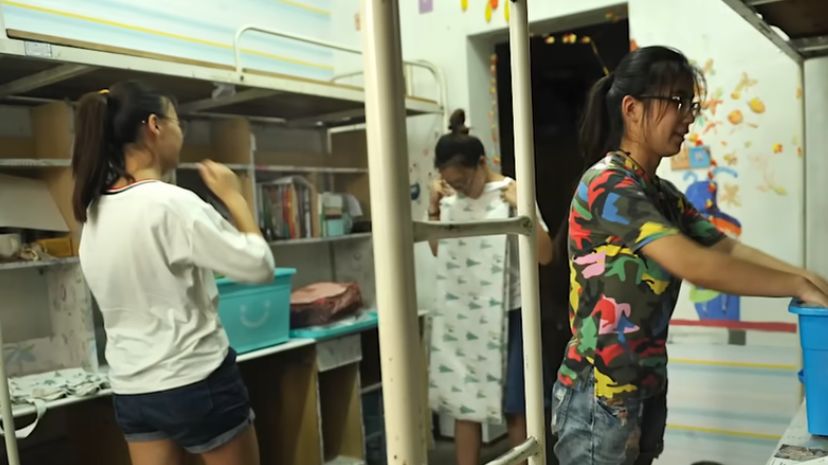If you are studying at college or a student, you will definitely get used to the concept of renting outside, that is, not in the dormitory of the school but to find a room, a private house to live more comfortably. In Vietnam, this is too normal but in China there was a period when students were not allowed to choose such. Students are forced to stay in the dorm and if they dare to go out to rent the house, it is considered a violation.
This story is not a rumor that used to be a policy applied throughout China. And the reason behind is not only as safe as people still say but also contains many other interesting factors. To understand why there is this, we have to borrow the Doraemon time machine about 2007. At that time, the Chinese Ministry of Education issued a clear document that asked all universities to be in the dormitory managed by the school. This is not encouragement or priority but is required. This means that anyone who goes out to rent is a violation and disciplined.
The goal of officially published is to ensure security to protect members from social risks, and help the school are easy to manage. There is this regulation because China is densely populated, tens of millions of students every year. If everyone lives on their own, the management will be very difficult. But that is only part of the story. Life in urging in China or in Vietnam may be a memorable experience, but for many people, they do not like it. In general, in terms of facilities, the dorm will be harder outside and also more inconvenient outside.
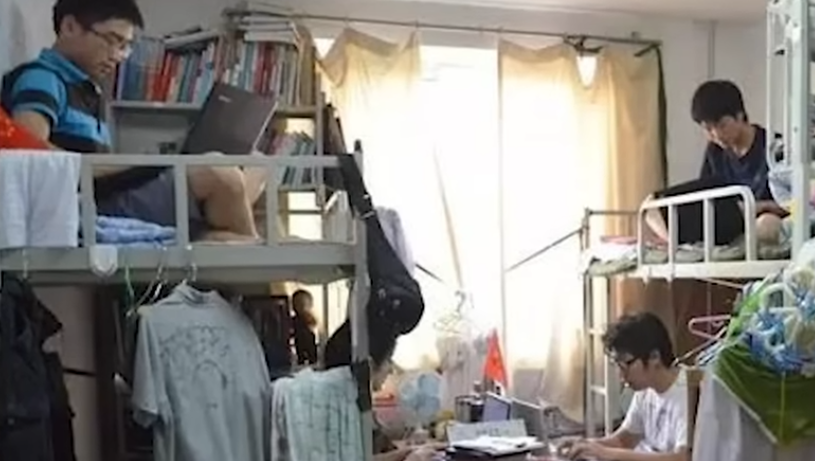
And yet, most dormitories have a curfew time. Usually, at a time, the dorm gate will close. If you are late, you have to sleep outside or be named in the violation book. Many places also have specific night time regulations for students to go to bed early, not stay up late to play games or watch movies. This is educational but the reality makes many students uncomfortable because there are people who need to study in the group, some people want to do more evening shifts or simply want to live in their own time. When being tied so, it is not difficult to understand when many students seek to go out to rent a house to be more free.
But the deep reason why the authorities and the school resolutely banned the hire of outside houses are not only in safety or time. This reason comes from a lifestyle of Chinese students, a story that caused a storm on Chinese social networks and media in the 2000s. Exactly on the media because at that time, social networks were not developed, it was a student trend of students. At that time, in many big cities such as Beijing, Shanghai, Guangzhou began to appear a new phenomenon. Men and female students rented a common house outside the dorm. They call it convenient, cost savings or to understand each other better if they are couples.
It should be remembered that at that time, China was still quite traditional about the concept of love and sex before marriage, especially in the student environment. For many parents and managers, the fact that two opposite sexes are unmarried but living under a roof is difficult to accept. The press at that time did not miss the opportunity to hit this hot topic. A series of articles, reportage, even television programs are produced around cohabited student stories like husband and wife.
Some newspapers also use sensational voices, for example, the dormitory is not warm enough, students go out to build a love nest or student love from love letter to living together just one step away. The purpose of these articles not only reflects the phenomenon but also soaked in warning about moral risks and consequences such as having an unintended children, dropped out of school or cracked relationships when they are not mature enough to face conflicts.
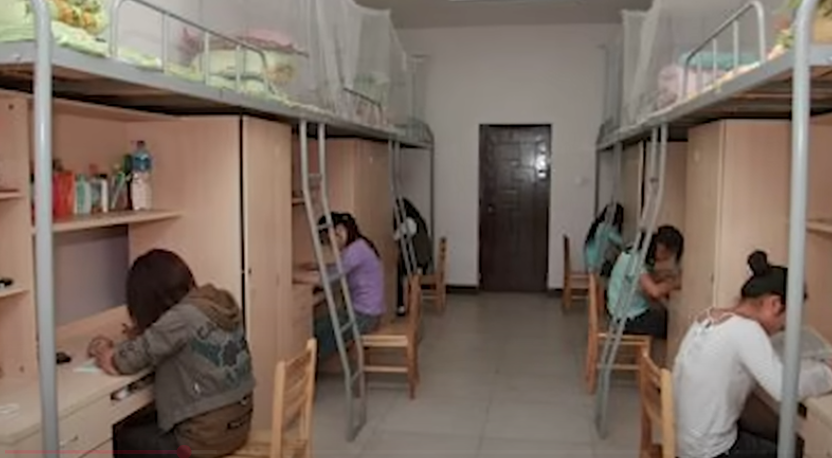
In the eyes of the educational manager, the student living with many potential risks. They are concerned that if they let this trend spread, they lose the image of the school and affect many other things, even causing cases where the press can exploit in a negative way. At that time, Chinese universities were under great pressure in keeping discipline. Students are always considered the future young intellectual group of the country. A sex scandal occurred in the student world may also be considered a failure in management. So many meetings of the Student Affairs Department, the student managers have bluntly stated that cohabitation is contrary to the fine customs and customs and is not suitable for the moral values that the school aims to. In this context, an extreme but simple solution is given.
Absolutely prohibit students from renting outside, forcing all to be in the dormitory for management
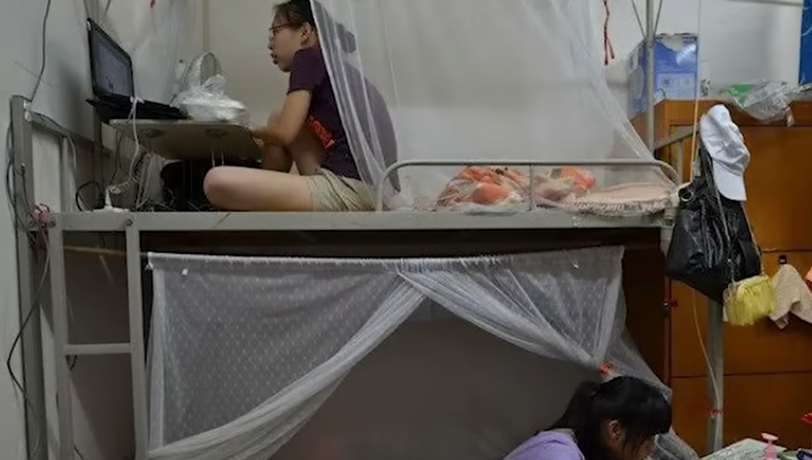
In fact, this policy right from the application has encountered many mixed reactions. Some parents and managers welcome to consider this a civilized solution to preserve student morality. But many students and some educational experts think that this method is too conservative, disrespectful to privacy and personal freedom. They argue that over -management not only does not solve the original problem but also can cause students to lack independent skills. And if they want to live together, they still have a way to circumvent the law. Students always think that they are adults, capable of deciding their own residence.
So why be treated like a high school student?
Some people complain that dormitories are too noisy, not suitable for serious learning. Others are uncomfortable because there is no private space, want to read books or work late is also affected. There are students who boldly propose to the school, even send letters to the newspapers to express their views, but of course the regulation remains the same. They think of enough ways to circumvent the law. Some rented outside but used relatives or friends who did not study university to sign a contract, avoiding the case of being discovered.
Some people still pay and hold a bed in the urge to be checked so that if they are checked, there is evidence that they are in the school but in fact they sleep outside. Others choose to rent a house with people who are both economical and difficult to be exposed. There are also funny stories like students who agree with underground manager, please take a look at me for enough, and when I go out, I don't know. Initially, the ban was strictly applied, especially in big cities like Beijing, Shanghai or Guangzhou, where high student density and relatively complete dormitory system. But a few years later, this regulation began to loosen.
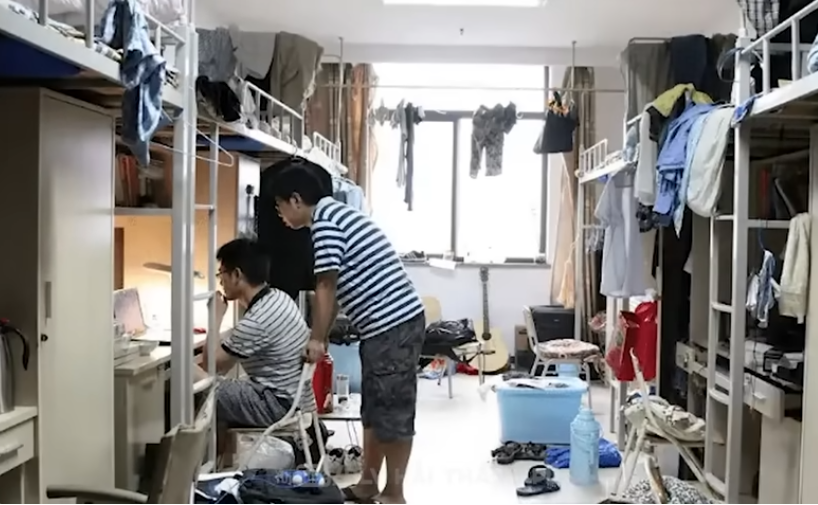
Some schools allow students to outsourced if there are plausible reasons, such as health status, quiet environment, urge to overload or special schedule. For international students, the regulations are often softer. They can rent out out of the temporary residence with the police and notify the school. In small cities or private schools, renting a house is almost unable to be strictly controlled. Another thing that is less mentioned is the money story. Dormitory is a stable source of revenue for universities in China. Each student at the dorm will pay rooms and often use accompanying services such as canteen, laundry, convenience stores on campus.
If the student goes out to rent, the school will lose a small revenue. Therefore, in addition to management and security reasons, there is also an economic engine to maintain this compulsory policy, at least in the early stages. Compared to Vietnam, this provision is really different. In our country, students are almost completely free to choose to stay. Even the maleest students can rent outsourcing if they want, just be agreed by the family and be able to pay. In Japan or Korea, many schools encourage first -year students in dormitories to integrate but not absolutely required. That makes China one of the few countries that have applied an outsourced ban nationwide.
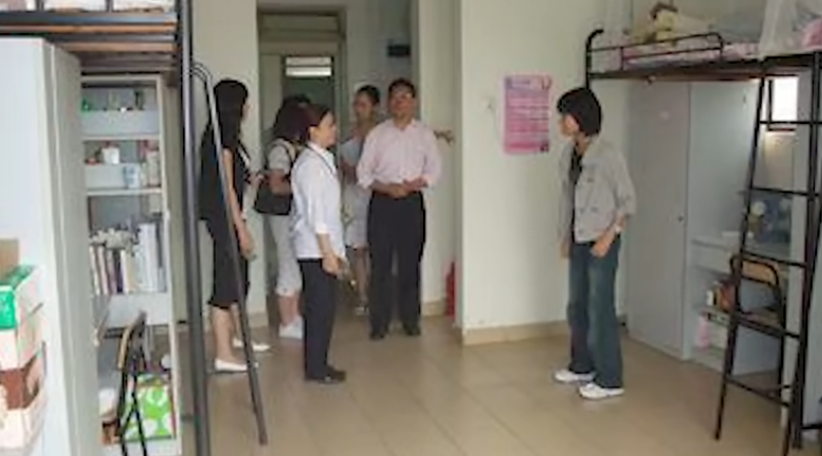
By this time, the situation has changed quite a lot, no longer a strict ban nationwide like 2007. Many schools have allowed students to outsourced if they apply for permission. International students are almost free, as long as they follow the regulations on temporary residence registration. However, in some large schools, especially public schools, first -year and second year students are still required at dormitories to get acquainted with the learning environment and preserve routine.
Looking back at the story of banning out -of -China houses reflecting the collision between personal freedom and collective management needs. From the perspective of the school, students in focus help control security better, limit risks and maintain an environment where they give healthy. But from the perspective of students, especially those who have grown up, they want to decide their own accommodation, live in space in accordance with personal needs. When these two views are opposite, conflicts are indispensable and history proves that the rigid policies are finally changing according to the situation of reality.
